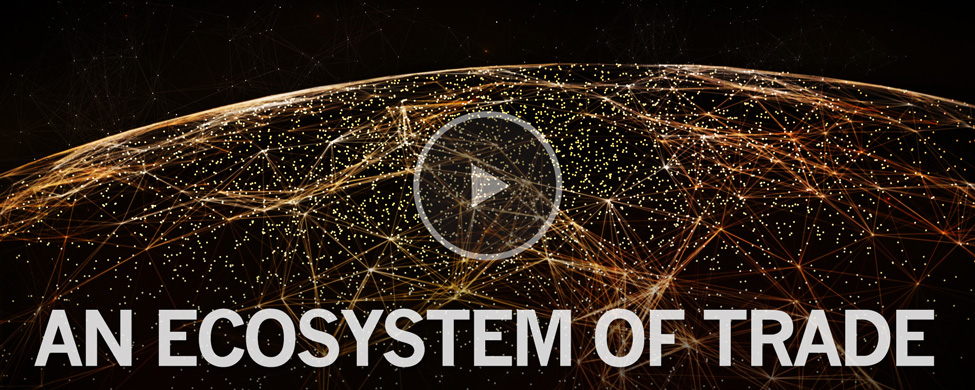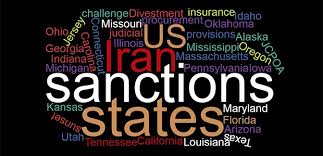New U.S. sanctions target the Iranian market’s economy and it won’t come to good results for marketing in Iran. Sabzalipor’s analysis of new U.S. sanctions: “With this and with the hostilities of the US government against Iran,
the prevailing confidence of the people about the implementation of the deal will surely be eliminated, which will cause a huge shock to the various markets of Iran, especially the foreign exchange market.”
Mohammad Reza Sabzalipour, chairman of the World Trade Center and chairman of the Resistance and Resettlement Policy Council, pointed to the new U.S. sanctions, known as S.722, which was passed in recent days with a high vote in Congress and Senate due to sanctions out of marketing in Iran, saying: “Although it’s about two years old, Which has started in Iranian market, and most of the people and economic activists are open minded about it and waiting for the emergence and appearance of its positive effects in different areas of work and life, but despite my inner will, I must admit this important fact that Unfortunately, implementation has only begun on paper and so much has happened in practice. U.S. sanctions for Iranian market has had huge role to play out of this sanctions for marketing in Iran.
Because most of the sanctions for Iranian market are still in place, and some of the sanctions, for example, have been suspended but they are temporarily suspended, so that they can be restored to the people of Iran again and again! On the other hand, from time to time, new sanctions are being adopted by the United States of America against Iran and Iranian market, which itself creates and brings barriers to implementation. In this regard, the last thing I can point out is the U.S. S.722 sanctions, which was passed a couple weeks ago by a decisive vote of 419 Congressional representatives and approved by a Senate vote against Iran. Although these massive sanctions against Iran and Iranian market, known as “sanctions’ mothers” or “black hurdles of sanctions”, appear to have been framed by an excuse and focusing on the Revolutionary Guards, Iran’s missile and human rights program, but in fact targeted Iran’s economic agenda. And regarding the transfer of capital and foreign investments, it creates limitations for marketing in Iran and Iranian market, which is precisely a major obstacle to the realization of the goal, and most importantly, it does not have a good result for the Iranian economy as well as for the foreign exchange market.
He added that the plan approved by the Congress and the Senate is “Code of Conduct against Iran’s 2017 Destabilizing Activities”, codified by code S.722, which provides for a variety of new sanctions against Iran that can be applied to it to the “black hole sanctions”. In the form of a black hole that enters everything, the approved plan, if signed by the trump, has the ability to put everything into a black hole to boycott. But what is the nature of the dilemma of this law?
According to the plan drafted on the U.S. Congress site, section 5 of this law is related to new sanctions against the Islamic Revolutionary Guards Corps (IRGC). In this section, Congressional representatives have called on their government to impose revision code of the Islamic Revolutionary Guard Corps (IRGC) within 90 days after the enactment of the above-mentioned Act 13224.
Executive Order 13244 was issued in 2001 by President George W. Bush. In this order, significant sanctions are imposed on terrorist organizations. Accordingly, based on this executive order, if a body or organization or a person is identified as a terrorist or a terrorist supporter, it will be subject to U.S. secondary bank and non-bank sanctions. This stage of sanctions for the Revolutionary Guard Corps is nothing new. Because now and even after the alleged sanctions have been taken, the Islamic Revolutionary Guard Corps is on the list of U.S. and non-bank secondary sanctions. That is, now the Corps is on the US SDN list. Currently, if anyone cooperates with the Guards, they are subject to some punishment from the United States that are temporary.
“What makes the situation very different, which makes the so-called” black hole sanctions “a rule, is that, according to Executive Order 13224, each one of them has an organization designated in this executive order as a sponsor of terrorism, a service (Any type of service, whether banking or non-banking), subject to U.S. secondary bank sanctions. In this way, that person or service provider institution itself is also on the U.S. sanctions list, the SDN. That is, there is no longer a temporary punishment, but that person or entity is completely included in the list of sanctions.
Clearly, I must say that Rule S.722 explicitly states that any person or company and internal and external organization that cooperates with the IRGC and provides military services to that organization will be subject to severe sanctions that are in the process of being The number of individuals, companies and organizations that are both domestic and foreign who cooperate with the Corps and financial and economic exchanges are not low. So, we should wait for all of them.
Sabzalipur added that this law will make the situation much more difficult when it comes alongside the IFCA-2013 law; because in the IFCA-2013 law, any Iranian entity that is placed on the U.S. SDN list by Iran is subject to secondary bank sanctions. That is, no one in the world, directly or indirectly, cooperates with this individual and institution, which otherwise faces the serious pressure and punishment of the United States and its allies./End of Item
Original Link: https://www.iranlocalize.com/index.php/blog/100-united-states-sanctions-and-marketing-in-iran













Leave a Comment